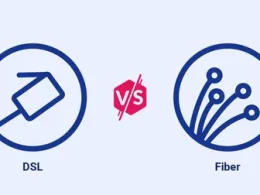In the rapidly evolving landscape of app development, beta testing plays a pivotal role in refining products before their official release. However, this essential process comes with its fair share of privacy and security concerns for both developers and testers. As the digital world becomes increasingly connected, safeguarding sensitive data and maintaining a competitive edge has become more critical than ever. Let’s delve into the common challenges faced by developers and testers during beta testing and explore best practices to mitigate these risks.

Developers: Protecting App Integrity and Privacy
Giving Your App a Negative Image
Beta versions are bound to have imperfections, which is the essence of the testing phase. However, developers must be cautious about how the beta version’s flaws may impact the public perception of the final product. Managing expectations and effectively communicating the purpose of beta testing can help alleviate concerns.
Maintaining a Competitive Advantage
Exposing a pre-release app to beta testers runs the risk of competitors gaining insights into a developer’s innovative ideas. Employing a carefully selected group of testers under non-disclosure agreements (NDAs) can help mitigate this issue, ensuring that sensitive information remains confidential.
Controlling Your Marketing Message
While beta tests can generate excitement and anticipation for an app’s launch, excessive exposure can dilute the developer’s marketing strategy. Striking a balance between generating buzz and maintaining control over the messaging is crucial for a successful launch.
Piracy
Piracy remains a long-standing concern for developers. Though beta apps may have limited availability, they are not entirely immune to piracy attempts. Employing robust security measures and protecting sensitive features can help thwart unauthorized access.
Security Vulnerabilities
Highly sensitive apps, such as those related to finance, are at higher risk of being targeted by malicious attackers during beta testing. Employing comprehensive security audits and penetration testing can help identify and address vulnerabilities proactively.
Beta Testers: Navigating Data Privacy Concerns
Data Collection and Privacy
With data breaches and misuse of user data making headlines, beta testers are becoming more cautious about participating in tests that collect extensive information. Startups and new apps face an additional challenge as they may lack a reputation to inspire trust. Developers must prioritize transparent communication about data handling practices and reassure testers about privacy protection.
App Permissions
Mobile apps often require various permissions to function, and testers may find certain requests suspicious if not adequately explained. Developers should clarify the purpose of each permission and ensure compliance with platform-specific guidelines to gain user trust.
Best Practices for Privacy and Security in Beta Testing
Limit the Number of Testers
Reducing the pool of beta testers can help decrease the risk of leaks and unauthorized access to sensitive data. A smaller, well-vetted group of testers can provide valuable feedback without compromising security.
Choose Testers Wisely
Carefully selecting testers who match the target audience and demonstrate reliability can foster a more controlled testing environment.
Use Legal Agreements
Implementing beta participation agreements and NDAs establishes clear expectations and responsibilities for testers. These agreements also inform testers about data collection and sharing restrictions.
Explain Agreements Clearly
Ensuring testers comprehend the legal agreements by explaining them in plain language can foster better adherence and understanding.
Provide Effective Communication Channels
Facilitating easy and direct communication channels for testers to provide feedback helps reduce the likelihood of testers venting frustrations on social media.
Offer Testers an Outlet
Creating a private forum or community where testers can interact and share excitement about the beta test provides a controlled environment for discussion.
Prioritize Security Best Practices
Employing code hardening, encryption, and HTTPS protocols strengthens the app’s defenses against potential cyber threats.
As developers and testers embark on the crucial journey of beta testing, addressing privacy and security concerns is not only a responsibility but a necessity. By fostering transparency, adhering to best practices, and prioritizing data protection, the app development community can navigate these challenges and deliver exceptional products to the world.












